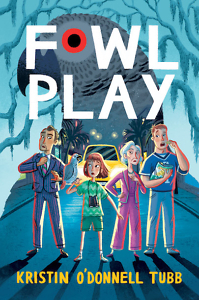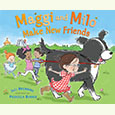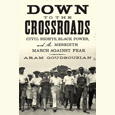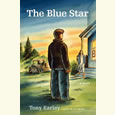He Would’ve Said Goodbye
A madcap murder investigation helps a family cope with a loved one’s death in Fowl Play
“It’s kinda hard to hunt for a murderer,” declares young Chloe Alvarez, “when you don’t want to remember that a person is dead.” Chloe is the narrator and main character of Nashville writer Kristin O’Donnell Tubb’s latest middle-grade novel, Fowl Play, and she is desperate to know what really happened to her Uncle Will. It’s only been three weeks since his funeral, and Chloe’s family — her mom, older brother, uncle, and grandmother — are still reeling from the shock. Uncle Will had died so suddenly, and they didn’t even know he was sick.

The novel opens with the reading of the will, and Chloe is surprised to hear that she is the new caretaker of Charlie, Uncle Will’s beloved — and outspoken — African Grey parrot. When Charlie starts randomly spouting suspicious words and phrases like “murder,” “cyanide,” and “this won’t hurt,” Chloe begins to wonder whether her uncle really died of natural causes. As Chloe’s suspect list grows, her family members begin to take an interest, and soon these amateur sleuths are in full-on Nancy Drew/Scooby-Doo mode, with comical, dangerous, and bittersweet results. Chloe knows the whole idea is crazy, but the consequences of stopping are more than she can bear: “… I can’t give up this stupid investigation. If Uncle Will knew he was going to die, he would’ve said goodbye to me. That’s why I have to believe he was hurt instead.”
Complete with a mysterious psychic, a loan shark named “Jaws,” and the occasional Emergency Dance Party, Fowl Play uses the family’s wild adventures to explore how grief can disguise itself as anger, regret, confusion, and feelings of abandonment. Chloe’s grandmother tells her, “Grief is unexpressed love for someone we’ve lost.” But for Chloe, it feels more like “a whole wad of emotions tangled together, like necklaces you love but can’t wear because of the frustrating work required to untangle them.”
Tubb excels at writing fun stories with engaging characters that also tackle the important work of helping young readers untangle all kinds of complicated feelings without fear or guilt. She answered questions from Chapter 16 via email.
Chapter 16: Although your books include plenty of humor and adventure, they don’t shy away from serious subject matter. Previous storylines have included divorce, depression, and childhood diabetes. Fowl Play considers the death of a loved one and the nature of grief. Is there a subject you are particularly proud to have tackled?
Kristin O’Donnell Tubb: I’m definitely proud of how Fowl Play explores grief. Grief looks different for every person, and honestly, can look different in the same person from one day to the next. I’m hoping that kids see grief takes many forms and that it’s something everyone — literally everyone — experiences at some point.
Another topic that seems to connect with many readers is the post-traumatic stress disorder represented in A Dog Like Daisy. I’ve received countless letters and emails from readers who are either managing PTSD themselves or have a loved one managing it. “I really made connections because my mom has PTSD and it’s really hard to deal with,” one young reader from Oklahoma wrote. “My dad was in the army and he lost a lot of good friends,” wrote another.
These kids, they’re every bit as human as adults, and they feel everything we feel. The only difference is it may be the first time they’re feeling it, and they need help sorting through and navigating those big emotions. I think adults forget that so often — the emotions kids feel are real, and big, and the more kids can read about them and experience them in the safety of story, the less alone and better prepared they’ll feel.
Chapter 16: I believe Charlie is your first feathered main character. And what a character she is. How did you choose an African Grey parrot for a speaking part in Fowl Play, and were you ever tempted to tell the story from her point of view, as you have done in the past with multiple canine characters?
 Tubb: Ha — thank you! Charlie was so much fun to write. Great characters talk to you in a way that is so clear and exciting, it can be hard to keep up with their chatter. I started this story by researching starlings, actually — I’m fascinated by their murmurations and how they can imitate musical notes. (It’s thought that Mozart had a pet starling!) But I needed the bird to interact more than a small starling would, so parrots immediately came to mind.
Tubb: Ha — thank you! Charlie was so much fun to write. Great characters talk to you in a way that is so clear and exciting, it can be hard to keep up with their chatter. I started this story by researching starlings, actually — I’m fascinated by their murmurations and how they can imitate musical notes. (It’s thought that Mozart had a pet starling!) But I needed the bird to interact more than a small starling would, so parrots immediately came to mind.
In researching the different breeds of parrots, I found that African Greys often have the largest vocabulary. And then I started watching YouTube videos of African Greys — hilarious! They are snarky little pranksters who love being the center of attention. It only took watching two or three snippets before Charlie’s voice solidified for the story. I never really considered telling the story from Charlie’s POV, possibly because I’m not actually a parrot owner and I’m not sure I could capture her thoughts and feelings as accurately as a dog’s! (I own two dogs currently and will happily share their photos with anyone who asks!)
Chapter 16: Fowl Play is definitely a mystery, but several of your books include mysterious elements. What mysteries inspired you as a child? Were you perhaps a fan of characters such as Encyclopedia Brown or Harriet the Spy?
Tubb: Oh, I loved Encyclopedia Brown as a kid! In fact, some of the first stories I had published for young readers were shorter magazine pieces that I modeled after Encyclopedia Brown. The stories featured two reptiles — Sal the Salamander and Iggy the Iguana — as they solved crimes in the insect world (using clues like an iridescent snail trail or a cicada’s loud singing). And The Westing Game is still one of my all-time favorite books; whenever I’m asked about fictional characters I’d love to meet, Turtle Wexler is near the top of the list. I quickly moved into mysteries written by authors like Mary Higgins Clark and Agatha Christie as a tween. I’ve heard it said that, on some level, every book is a mystery. It can certainly feel that way when you’re writing it! But I adore mysteries and I’m looking forward to writing more. They are so much fun to plot.
Chapter 16: Why did the city of Charleston, South Carolina, suggest itself to you as the perfect setting for Fowl Play?
Tubb: Once at a Society of Children’s Book Writers and Illustrators conference, a visiting agent said, “If your story can be set anywhere, your setting isn’t working hard enough.” I’ve never forgotten that advice. I had the entire plot of the book mapped out before I settled on Charleston as the setting, and that came about thanks to a brainstorming session with a dear writer friend, Alisha Klapheke. When I explained that I wanted a spooky, creepy, graveyard-strewn, ghost-laden setting for this story, she immediately suggested Charleston. The author community in Nashville — in all of Tennessee! — is amazing and so, so supportive. I adore brainstorming with fellow creatives. This is a wonderful community, and I’m very grateful to be a part of it.
Chapter 16: Fowl Play is your 12th book for children. What are some lessons you have learned through the process of writing over the past 16+ years? What has your audience taught you?
Tubb: I’ve learned so many things, and I’m definitely still learning! I’ve learned that every book comes to life differently; the process that worked on your last story might not work for this one. I’ve learned that I will always, always hit a point in the writing where I’m convinced the story is irrevocably broken and I will never figure out how to fix it. I’ve learned I will always figure out how to fix it — if I’m patient. (I’ve learned I’m very impatient.) And I’ve learned that middle-grade readers are THE BEST readers. It is an honor and a privilege to write for this age group.
When you write for readers age 8-14, your story may very well be the first time that reader has encountered an idea or topic (like service dog training, or PTSD, or the care and keeping of mysterious inherited parrots). That’s a responsibility I take very seriously; I try my hardest to make my stories authentic and accurate, but also fun and accessible to new readers. Middle-grade books build lifelong readers; when you think back on the books that have shaped your worldview the most, it will almost always include a book you read in elementary/middle school. (Mine include A Wrinkle in Time and Bridge to Terabithia.) I’m still learning and growing and creating, which makes this job so spectacular.
Chapter 16: What’s up next for your fans?
Tubb: Can I share how excited I am about the Fowl Play launch party? I’ve partnered with Parnassus Books and the Nashville Zoo, and everyone who preorders a copy of Fowl Play from Parnassus receives a free ticket to the zoo! We’re gathering on August 2 to celebrate its release. You can get your book signed and personalized, win prizes, and learn more about parrots from zoo experts. More details are on the Parnassus website. I’m so excited about this event! Everyone is welcome!
On the writing front, I have another bird mystery in mind, and I’m a MASSIVE fan of heist stories, so I’d love to share one or more of those. I love graphic novels and novels-in-verse … basically, I’m interested in it ALL, and I’m supremely grateful to have the opportunity to explore these new ideas.

Tina Chambers has worked as a technical editor at an engineering firm and as an editorial assistant at Peachtree Publishers, where she worked on books by Erskine Caldwell, Will Campbell, and Ferrol Sams, to name a few. She lives in Chattanooga.





